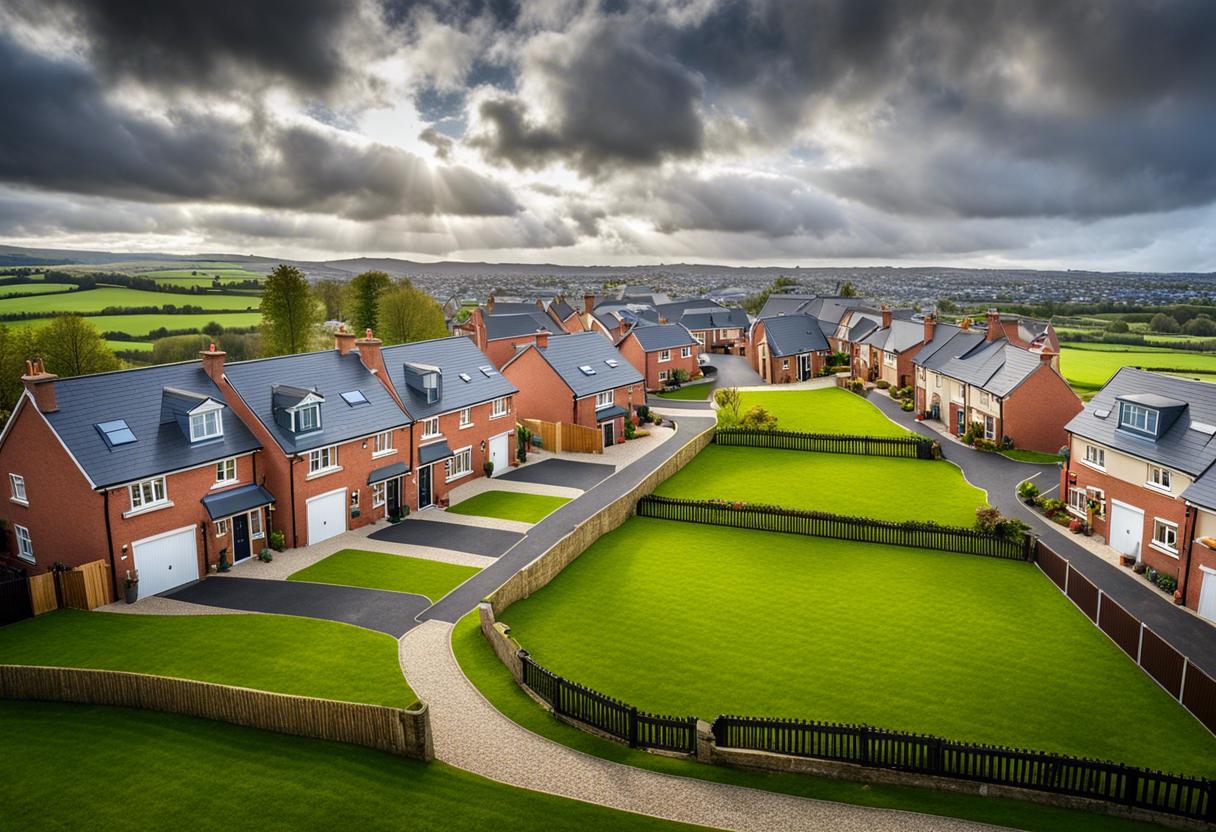According to Davy Stockbrokers, the Republic of Ireland requires nearly 85,000 new residences annually to meet the emerging demand caused by the expected growth in population within the next decade. Davy’s recent economic report highlighted the potential for the Irish economy to experience a fresh wave of rapid advancement, buoyed by decreased inflation, multi-national corporation investments, and professional employment creation. Expectations from Davy suggest Ireland’s populace will rise to 5.9 million by 2030, a surge of 10%, or 524,000 people, beyond the official dimensions laid out by the state in the National Planning Framework (NPF).
In line with these population estimates, Davy Stockbrokers argued that closing Ireland’s housing demand gap with fellow European nations would necessitate the production of nearly 85,000 houses annually for the next decade, 2.6 times the completion level estimated for 2023 (33,000). The firm insisted that this scenario brings to light the extent of Ireland’s need for more housing, assuming population figures reach the forecasted 5.9 million by 2030.
During the property boom, Ireland began closing the gap with other European nations in terms of housing availability. However, Davy Stockbrokers observed that the location distribution of newly constructed units throughout Ireland in the 2000s did not meet the sectors with the highest demand.
The company anticipates that new home completions will rise to 36,000 houses this year and 42,000 in the following year, although this is still significantly less than the country’s deep-rooted housing requirement.
Regarding Ireland’s financial prospects, Davy Stockbrokers maintained that the economy has shown resilience and anticipates strong growth in the future. They predict an extensive quickening of economic progression, as indicated by the Central Statistics Office’s specific gross national income (GNI*) measure, with an increase of 4.5 per cent in 2024 and 4.3 per cent in 2025, rising from 3 per cent in the previous year. This detailed forecast is supported by an anticipated employment growth of 2 per cent this year, which would be bolstered by FDI and what is referred to as “specialised inward migration”.
A decrease in inflation, to nearly 2 per cent, can potentially catalyse an increase in consumer expenditure growth, which is anticipated to surge by 4 per cent this year. However, there’s a warning from the brokerage that the current vigorous activity is causing tension on Ireland’s infrastructure. They emphasised the necessity to address threats to competitiveness in order to prevent a stagnation in Foreign Direct Investment (FDI) and employment generation. Davy has also issued a caution that robust demand in the economy could potentially trigger a revival in inflation, particularly if the government decides to implement another expansionary budget.

